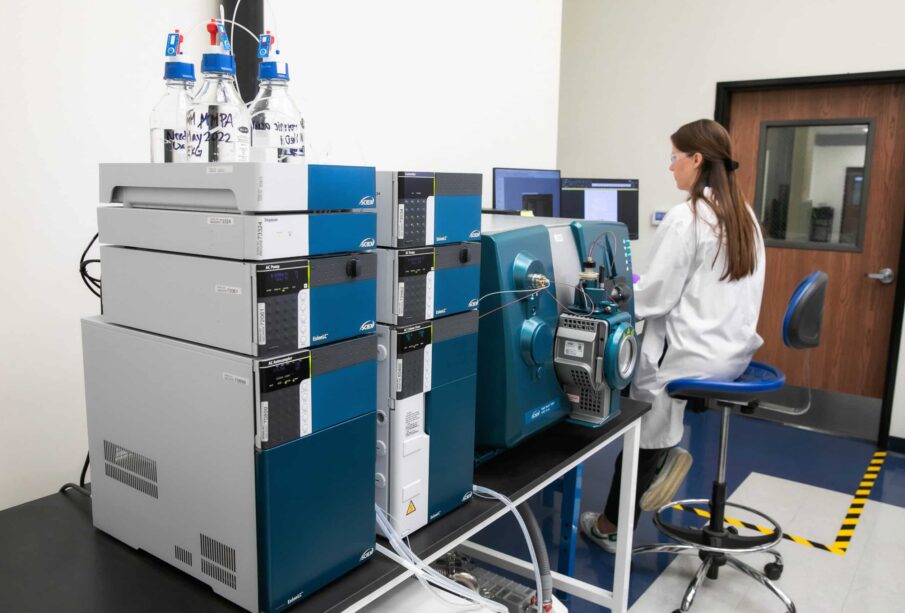Exploring LC MS Services: Applications in Drug Discovery and Clinical Research

LC MS Services
Liquid chromatography-mass spectrometry (LC-MS) is a robust tool with unique capabilities for analytical and pharmaceutical analysis. LC-MS testing can assess a broad spectrum of pharmaceutical compounds with powerful analytical features such as selectivity, sensitivity, cost-effectiveness, and speed of analysis. Over time, these characteristics have improved constantly, resulting in more reliable and easy-to-use instruments.
The combination of liquid chromatography and mass spectrometry within the pharmaceutical industry is increasingly being employed during the early stages of development. HPLC analysis has a long tradition of applications in the pharmaceutical domain. It is a powerful tool for studying complex samples and separating individual components. On the other hand, mass spectrometry has limited applications in drug development. This scenario changed with the advent and introduction of electrospray ionization techniques. Today, LC-MS services are employed routinely in drug discovery and development studies. The current article explores LC-MS sample testing during drug discovery and clinical research. However, a robust LC-MS method development and validation remains critical for a reliable bioanalysis lab.
LC-MS lab services for drug discovery and development
Recent years have witnessed a significant shift from detailed-oriented research to conducting high-volume screening in drug discovery projects. Definitely, detailed knowledge is critical during drug discovery, however, the demand for screening a vast array of potential molecules is crucial for identifying lead compounds. As a result, drug developers relied on advanced methods to generate and validate a drug compound. LC-MS-based strategies have rapidly entered the drug discovery domain. Their applications range from confirming the molecular weight of synthetic lead compounds to highly selective techniques for identifying molecular structures. Besides, the applications of LC-MS assays during drug discovery include peptide mapping, glycoprotein mapping, natural product dereplication, bio-affinity screening, in vivo drug screening, and metabolic stability screening.
Must Read: Navigating the Frontier of LC-MS Laboratory: Cutting-Edge Techniques and Technologies
Preclinical drug development focuses on transitioning lead candidates from early drug discovery to preclinical testing that primarily focuses on testing the drug compounds in animal models. LC-MS-based systems are employed largely during preclinical testing. Early structural data of potential compounds is crucial in identifying ideal molecules early during preclinical development. Chromatography separation provided by HPLC columns offers data with reproducible retention times, while LC-MS and LC-MS/MS systems help determine the molecular weight and structural molecular data. Primary LC-MS assay applications during preclinical drug development include metabolite identification, impurity identification, and degradant identification.
LC-MS assays are critical for the success of efficient clinical development. During the clinical drug development stage, LC-MS systems are majorly used in pharmacokinetic activities. Over time, LC-MS assays have emerged as a promising tool over traditional HPLC systems for pharmacokinetic evaluation in terms of time, cost, and turnaround time during method development. Not to mention, tandem mass spectrometry approaches have further skyrocketed their applications in clinical research. However, as mentioned earlier, a fit-for-purpose LC-MS method validation at every stage of drug development is critical for demonstrating the reliability, reproducibility, and accuracy of assay results. The primary applications of LC-MS assays in clinical development include quantitative bioanalysis through selected ion monitoring, selected reaction monitoring, automated solid phase extraction, automated online extraction, and other identification uses such as metabolic and degradant identification.
Leave a reply
You must be logged in to post a comment.









